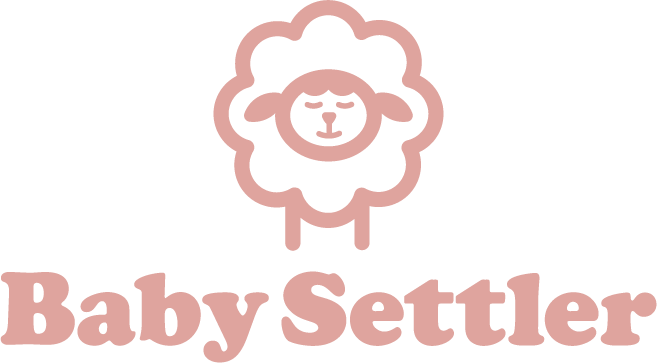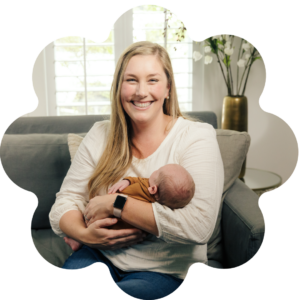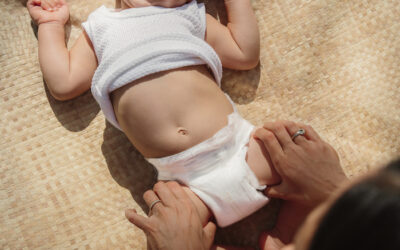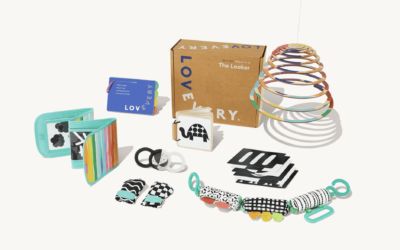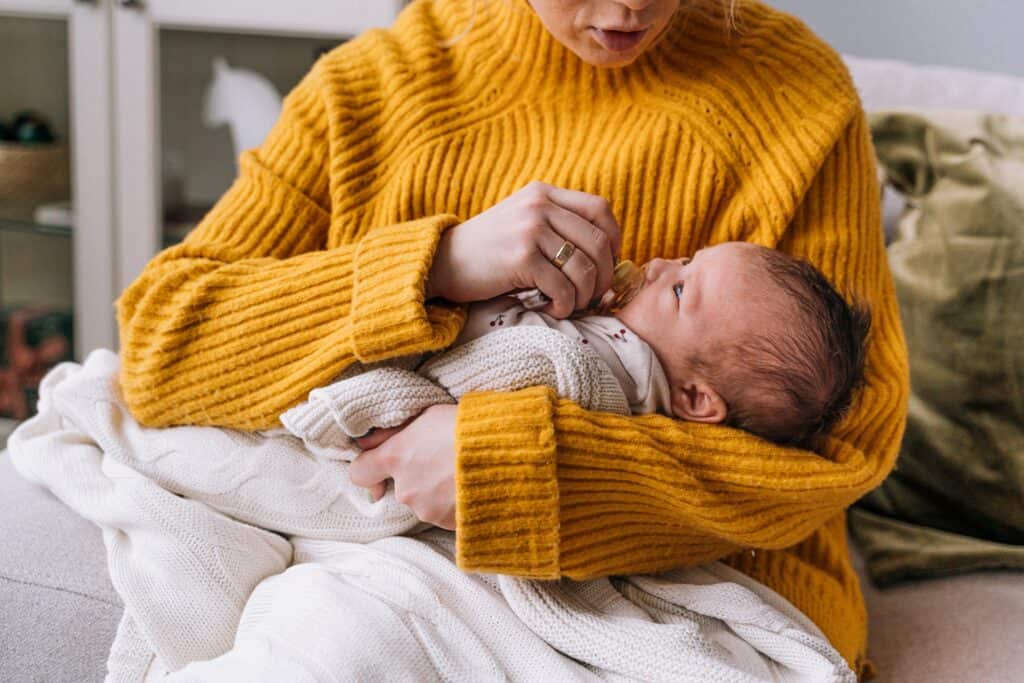
Giving your baby a pacifier: Good or bad? Pacifiers tend to get a bad rap…Over my decades working with mamas, I’ve found that so many of them want to avoid giving their babies pacifiers, but they don’t really know exactly why. They’ve just heard that it can cause issues, especially with breastfeeding.
But here’s the thing: Pacifiers aren’t bad or dangerous. It’s just like any other baby product – it has to be used appropriately and when your baby is developmentally ready.
There are a ton of pros to giving your little one a pacifier:
- Pacifiers can reduce the risk of SIDS
The American Academy of Pediatrics encourages pacifier use when putting baby down for naps and bedtime to help reduce SIDS, “The pacifier should be offered to the infant when being placed for all sleep episodes, including daytime naps and nighttime sleeps…[this is] based on the consistency of findings and the likelihood that the beneficial effects will outweigh any potential negative effects.”
- Pacifiers can help premature babies with suck
A Cochrane review found that nonnutritive sucking (sucking on a pacifier) is associated with shorter hospital stays in preterm babies. The study states, “An overall analysis suggests that non-nutritive sucking reduces the time infants need to transition from tube to full oral feeding, and from [the] start of oral feeding to full oral feeding.”
- Pacifiers can be used as a source of pain relief
Non-nutritive sucking has been shown to provide pain relief in babies with colic, who are receiving vaccines, or who are injured, sick, or undergoing a medical procedure.
However, when is the right time to introduce a pacifier to your baby?
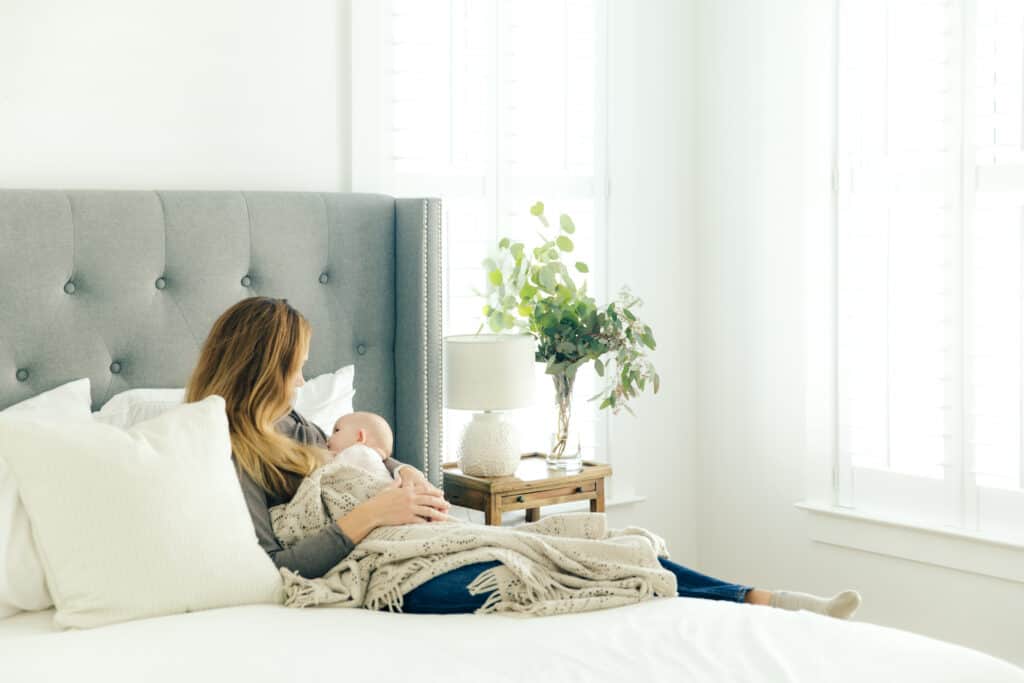
When Should You Give A Newborn A Pacifier?
We suggest waiting until your baby’s latch and your milk supply are well established before giving them a pacifier.
It’s so important to focus on getting the latch 100% correct, so it’s best not to let anything interfere with this process, like a pacifier. It’s the same with a bottle – a bottle nipple and pacifier can cause nipple confusion if introduced too soon.
If a pacifier is given to a baby too soon, it may impact the mother’s breast milk supply. Breast milk production works on a supply-and-demand basis. The more a baby feeds, the more milk the body produces to meet the demand. Before three to four weeks of age, if introduced to a pacifier, a baby may spend less time at the breast, affecting milk production.
If breastfeeding isn’t part of your motherhood journey, then you don’t have to wait.
If you’re concerned that the pacifier is negatively affecting your breastfeeding, then it may be time to get evaluated by an IBCLC. We can do a weighted feed, talk through history, and evaluate your baby’s latch and suck patterns to find a culprit and solution. Book a consultation here.
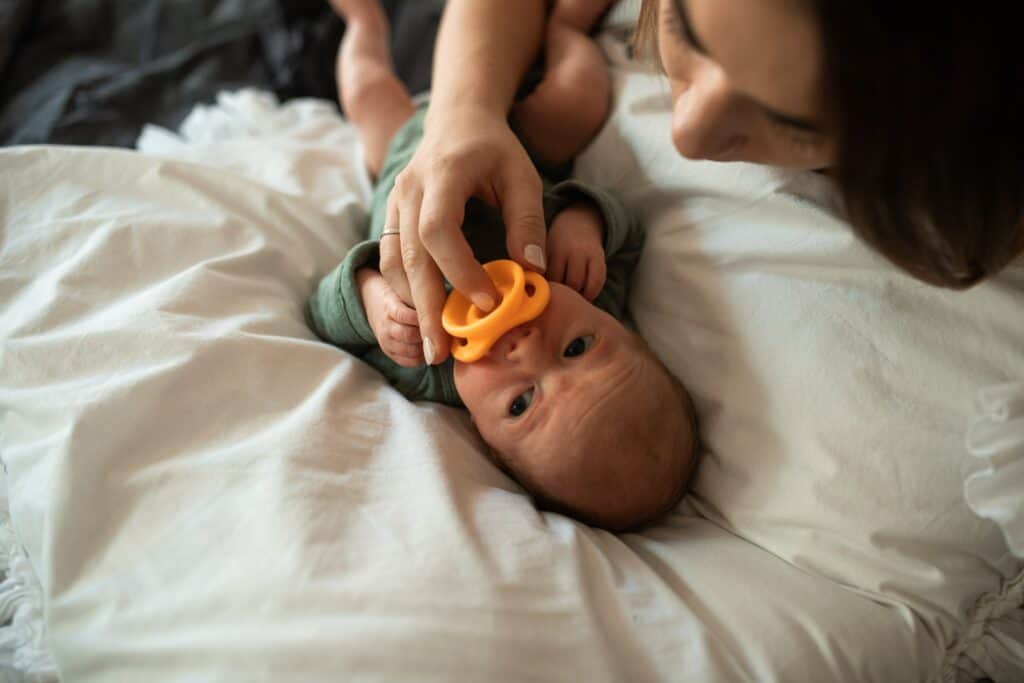
Is It Good For A Newborn To Sleep With A Pacifier?
Yes! As mentioned above, giving your baby a pacifier can help reduce the risk of SIDS. Even after they’ve fallen asleep, there is no reason to remove the pacifier from their mouth. “Parents are often worried that if they leave a pacifier in their baby’s mouth while he or she is sleeping, it can become a safety hazard and potential choking threat…However, pacifiers with ventilation and ergonomic design allow for easy breathing when using,” explains Medela. If the pacifier falls out while your baby is sleeping, you don’t have to reinsert it.
Tip: While pacifiers are beneficial, it’s essential to create an overall safe sleeping environment for your baby. This includes laying them on their back to sleep and keeping hazardous materials out of their crib (such as blankets – use swaddles or sleep sacks instead).
Sucking on a pacifier is super relaxing for little ones, so it can be a perfect addition to their bedtime routine. When consistently used at sleep times, the pacifier can signal to the baby that it’s time to sleep. This makes it easier for them to settle down – hello healthy sleep patterns!
If your baby sucks on the pacifier and falls asleep quickly, they probably just needed it to soothe. But, if they are vigorously sucking on a pacifier and wide awake, they may actually be hungry.
Tip: Wash pacifiers once a day in warm soapy water to get rid of germs. Make sure all soap is rinsed off and the pacifier is 100% dry before giving it to your baby.
When To Get Rid Of The Pacifier
With all the benefits of pacifiers, should you ever take it away from your baby? Yes, you should have a pacifier weaning system in place after your baby turns one. According to the American Academy of Pediatric Dentistry, “…a prolonged pacifier habit after 12 months of age can increase the risk of acute otitis media (an infection of the middle ear). Pacifier use beyond 18 months can influence the developing orofacial complex (the jaw, lips, tongue, soft palate, and larynx), leading to anterior open bite [and] posterior crossbite…”
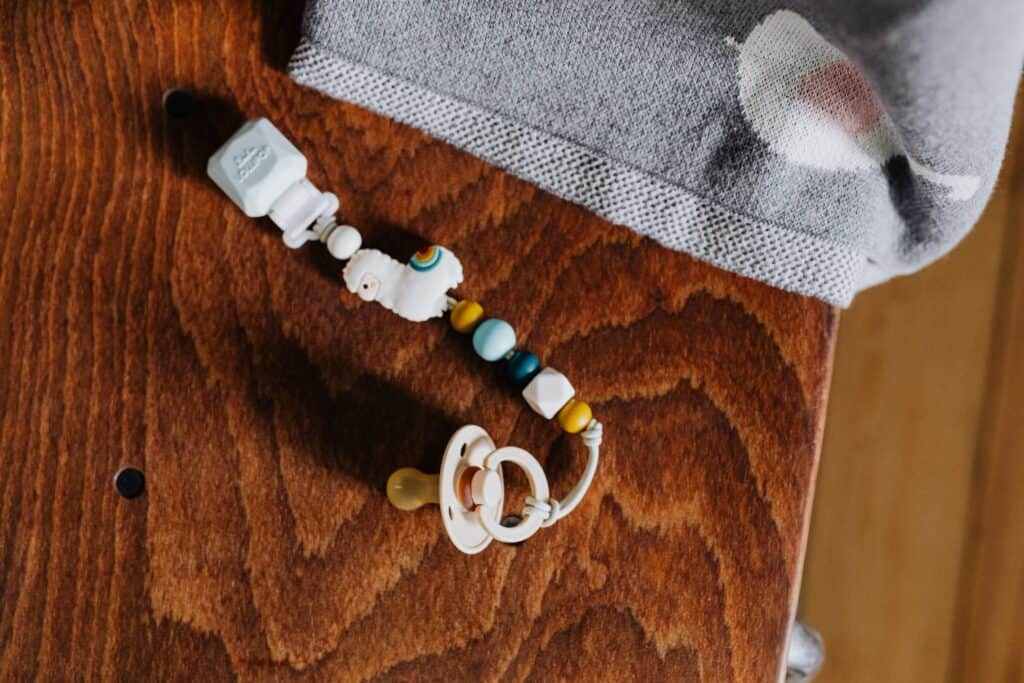
Pacifier Weaning System
It’s best to take your time when it comes to weaning your toddler off of their pacifier. First, explain to them that their pacifier isn’t going to be available at all times. “Let your toddler see you bragging to their favorite teddy that very soon your toddler is going to put down their paci,” suggests Healthline.
Then, start reducing the amount of time your toddler has the pacifier. So, limiting it to naptime and bedtime. Instead, offer other items such as a special blanket or stuffed animal.
It’s important to talk to your toddler through the weaning process. Also, give them positive affirmations and rewards when they go without their pacifier.
You could even have a little goodbye ceremony for the pacifier. Get excited with your toddler about how big they’re getting and entering a new phase.
Pacifiers can be a wonderful, comforting item to give to your baby. Like everything else, there is an appropriate time and way to use them to benefit your little one. Make sure your breastfeeding routine and latch are established and have a weaning plan in place when they turn one.
